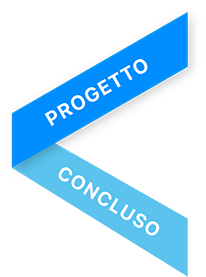Una campagna di Mario e Stefano Martone
ContattiRecupera la tua password
Inserisci il tuo indirizzo email: ti invieremo una nuova password, che potrai cambiare dopo il primo accesso.
Password inviata
Controlla la tua casella email: ti abbiamo inviato un messaggio con la tua nuova password.
Potrai modificarla una volta effettuato il login.

Dert
- Raccolti € 10.000,00
- Sostenitori 159
- Scadenza Terminato
- Modalità Prenotazione quote Informazioni
Prenotazione quote
Nessun pagamento anticipato online! Il budget è diviso in quote: puoi scegliere quante quote prenotare oppure la ricompensa (se prevista). Alla scadenza della campagna, se sono state prenotate tutte le quote, vieni contattato dall’autore del progetto per saldare le quote prenotate e ottenere la tua ricompensa.
- Categoria Documentari & inchieste
Il Progetto
Un documentario di Mario e Stefano Martone
La storia della cooperativa agricola Insieme e dell'amicizia che l'ha resa possibile, quella tra Rada, Skender e Mario e della grande rete di amicizia solidale che si è costituita, attraverso i confini, attorno ai valori comuni che questa esperienza rappresenta. A vent'anni dai tragici avvenimenti che hanno sconvolto la Bosnia, DERT si muove nei luoghi della memoria di un paese segnato dalla guerra ma non è un film sulle vittime e sul dolore. É la testimonianza di una straordinaria esperienza collettiva fondata sulla dignità e sul lavoro. Un esempio di convivenza a dispetto di tutti i nazionalismi.
CONTESTO
La cooperativa Insiemeviene fondata nel 2003 a Bratunac, sulla riva occidentale della Drina, al confine tra la Bosnia Erzegovina e la Serbia, a pochi chilometri da Srebrenica.
Dall’inizio di aprile del 1992, dopo il collasso della Jugoslavia, la Bosnia Erzegovina ha sofferto una sanguinosa guerra d’aggressione terminata nel novembre 1995. Più di centomila morti, migliaia di scomparsi, oltre due milioni di profughi, economia ed infrastrutture distrutte. Il conflitto ha provocato un profondo cambiamento della struttura demografica della popolazione, come risultato delle operazioni di “pulizia etnica” dei territori.
Durante il conflitto, l’area di Bratunac è teatro di scontri durissimi. Molte famiglie si rifugiarono nella cittadina di Srebrenica, enclave a maggioranza musulmana in un territorio a maggioranza serbo-ortodosso, che era stata dichiarata area protetta dalle Nazioni Unite. L’11 luglio 1995 l’esercito serbo-bosniaco viola l’area protetta, entra nella città e commette un massacro sistematico degli uomini musulmani, inclusi i giovanissimi e gli anziani. Le donne e i bambini sopravvissuti sono trasferiti in campi profughi. La strage è di dimensioni inaudite, le vittime stimate sono più di ottomila. É il primo genocidio riconosciuto in Europa dopo la seconda guerra mondiale.
Mario Boccia, fotogiornalista che ha seguito e documentato il conflitto nei balcani fin dall'inizio, è legato da un'amicizia profonda e solidale con Rada e Skender, presidente e direttore della cooperativa che raccoglie piccoli frutti e li lavora per farne succhi e marmellata. La raccolta avviene in estate nelle terre vicino a Bratunac e nella regione della Bosnia centrale, da cui provengono i mirtilli selvatici per i prodotti biologici. Molti direbbero che i soci della cooperativa, ormai più di 500, in prevalenza donne, sono di “etnie” diverse. Loro rifiutano questa distinzione. Lavorano fianco a fianco uniti dal desiderio di restare nella loro terra comune. Ricostruiscono un presente insieme, a dispetto di un passato che li vorrebbe divisi. Il loro esempio sembra gridare alla Bosnia Erzegovina e all'Europa intera: se si può fare qui, sarà possibile ovunque.
PERCHÉ SOSTENERCI
Abbiamo già fatto un sopralluogo a Sarajevo, Tuzla, Mostar, Srebrenica e Bratunac. Al termine della campagna di finanziamento, a luglio 2015, torneremo in Bosnia per terminare le riprese.
É un periodo molto importante per la cooperativa Insieme perchè coincide con l'inizio della stagione della raccolta. Ma lo è anche per tutta la Bosnia, poichè l'11 luglio ricorrono i vent'anni dal massacro di Srebrenica, un evento che sarà vissuto in maniera particolare da tutti gli abitanti della regione.
Con il contributo di tutti i sostenitori copriremo le spese di viaggio, le riprese e una parte della post-produzione del documentario che sarà terminato entro il 2015.
CHI SIAMO
Mario e Stefano Martone hanno realizzato lavori di documentazione sociale e antropologica, in collaborazione con ONG ed enti pubblici, in Bosnia, Sud America, Palestina e Libano. Dal 2006 al 2010 hanno coordinato corsi di realizzazione video nei campi profughi palestinesi del Libano. Sono tra gli autori del documentario NAPOLI 24, prodotto dall’Indigo Film e presentato al Torino Film Festival 2010.
Il loro ultimo lavoro Lucciole per lanterne, ambientato nella Patagonia cilena, è stato presentato in più di 70 festival in 25 paesi, ricevendo premi e riconoscimenti.
COME SOSTENERCI
1) Cliccate sul pulsante verde PRENOTA.
2) Scegliete la ricompensa (ricordate di selezionare la casella "Temini e condizioni del servizio").
3) Se non siete ancora registrati, indicate il vostro indirizzo email e indirizzo di spedizione.
Pagherete la ricompensa prenotata solo al termine della campagna e solo se il finanziamento collettivo sarà andato a buon fine. Saremo noi a contattarvi tramite email e avrete tutte le indicazioni per il pagamento.
A film by Mario and Stefano Martone
The movie DERT is about the cooperative Insieme and the friendship between Rada, Skender and Mario that made it possible together with the net of supportive friendship that set up, through the borders, sharing common values. Twenty years after the tragic events that upset Bosnia, DERT moves in the places of memory of a country marked by the war, but this is not a film on victims and pain.
It is the testimony of an extraordinary collective experience founded on dignity and work. It is an example of cohabitation in spite of all the nationalisms.
CONTEXT
The cooperative Insieme was founded in 2003 in Bratunac, on the western shore of the Drina, at the border between Bosnia Herzegovina and Serbia, a few kilometers away from Srebrenica. Since the beginning of April 1992, after Jugoslavia collapsed, Bosnia-Herzegovina has suffered a bloody war of aggression ended in November 1995. More than one hundred thousand dead, thousands of disperses, over two million refugees, destroyed economy and infrastructures. The conflict brought a deep change in the demographic structure of the population as a result of "ethnic cleansing" operations.
During the conflict, Bratunac area is theater ofhard clashes. Many families were sheltered in the town of Srebrenica, the Muslim majority enclave in a Serb-orthodox territory, declared protected area by the United Nations. On July 11th 1995, the Serb-Bosnian army violates the protected area, enters the city and commits a systematic massacre of the Muslim men, including younger and elderly ones. Survived women and children moved to refugee camps. The esteemed victims of the slaughter are more than eight thousand. It is the first recognized genocide in Europe after the Second World War.
Eight years later the end of the war, Cooperative Insieme was founded. It was an important step of the area’s reconstruction. The cooperative produces juices and jams from local berries. Many would say that the partners, by now more than 500 and mostly women, come from different “ethnic groups”. They refuse this distinction. They work side by side united by the will of staying in their common land. They rebuild a present together, in spite of a past wishing them divided. Their example seems to shout to Bosnia-Herzegovina and to whole Europe: if it can be done here, it will be possible anywhere.
WHY SUPPORTING US
We think that this is an incredible example of renaissance dealing with a complex and painful past. That’s why we really need to tell their story, their strength to restart.
We already made inspections in Sarajevo, Tuzla, Mostar, Srebrenica and Bratunac. At the end of the crowd-funding, in July 2015, we will return to Bosnia in order to end the shooting. It’s a very important period for the cooperative Insieme: the beginning of the harvest. At the same time on July 11th they will celebrate the twentieth anniversary of Srebrenica’s massacre, a very intense moment for all the population.
With the contribution of all the supporters we will cover the trip expenses, the production and a part of the post-production. The documentary will be done within the 2015.

Commenti (22)